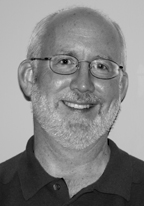|
||||||||||||||||||||||||||||||||||||||||
|
 L.H. Bunnell. As we climbed the mountains I looked back on the lovely little lake from which we were leading the last remnant of the once dreaded Yosemites to a territory from which it was designed they should never return as a people. I waited for Tenieya to come up and told him that we had given his name to the lake and the river. At first he seemed unable to comprehend our purpose, repeating: "It already has a name." Upon telling him that we had named it Tenieya because it was upon the shores of the lake that we had found his people, who would never return to it to live, his countenance fell, and he at once left us and rejoined his own family circle. His expression as he left us indicated that he thought the naming of the lake no equivalent for the loss of the territory.After his experiences with the Mariposa Battalion, L. H. Bunnel served as a surgeon during the civil war. The Discovery of the Yosemite appeared in 1880. |
|||||||||||||||||||||||||||||||||||||||
|
© 2000-2013 California Legacy Project, Santa Clara University English Department, Santa Clara University, 500 El Camino Real, Santa Clara, CA 95053.
For more information: Terry Beers, 408 554 4335, or . 



|
|

|








